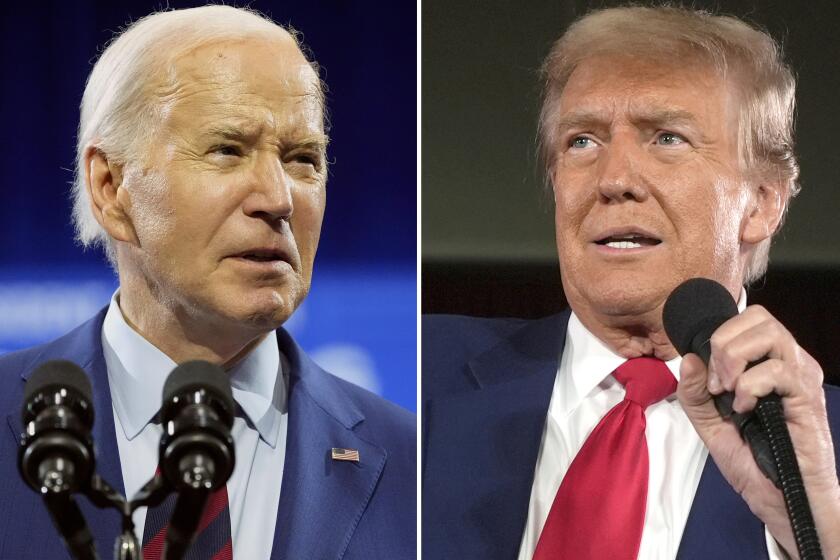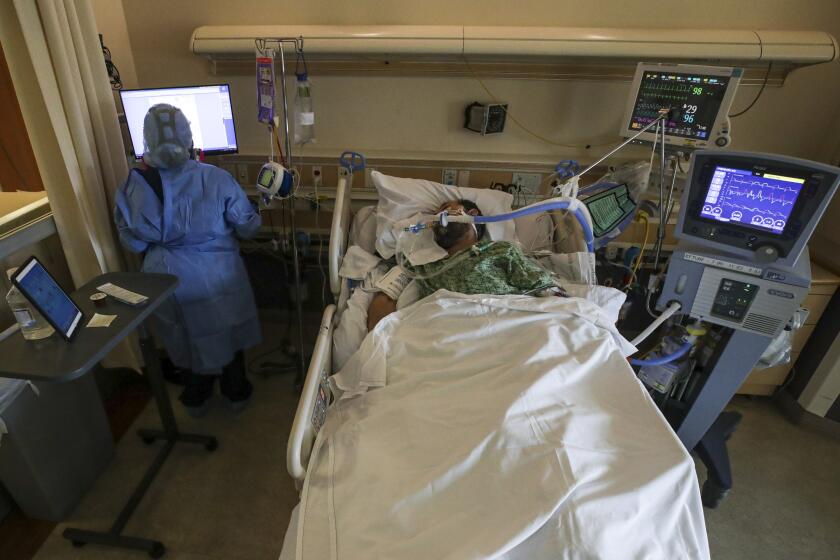A Big but Not Blank Check
President Bush has proposed spending more than $1 billion a day on defense next year. He will probably get what he wants, considering the circumstances. Even so, Congress should resist issuing blank checks.
Pay raises and better housing for personnel are fully warranted. But any number of weapons programs, from the Marines’ troubled Osprey tilt-rotor aircraft to the Army’s bulky Crusader artillery system, ought to get a very hard look--not be rubber-stamped by generals defending their turf and members of Congress funneling dollars to their home districts.
Bush and Defense Secretary Donald H. Rumsfeld came into office pledging a transformation of the military that would shed outdated equipment and tactics left over from the Cold War. The new emphasis would be on smaller, more mobile forces, able to reach a trouble zone quickly and fight in a variety of situations. The proving ground has been Afghanistan, and the combination of special operations troops on the ground, supported by carrier-launched fighter planes and by long-range bombers, has been highly effective.
Like any war, the Afghan campaign has been costly--about $1 billion a month. The cost will, however, fall as the bombing campaign ends and warships return home.
Bush proposes adding $48 billion to the current year’s $331-billion defense budget. That’s a hike of 14%, the biggest since the defense buildups under Presidents Carter and Reagan, when the Soviets were in Afghanistan and challenging the United States around the globe. But in the last quarter-century the U.S. economy has grown greatly as well, and while the percentage of gross domestic product given to military spending in the 1980s was about 6%, next year’s spending, if approved, will be about 4% of a $10-trillion GDP.
To his credit, Rumsfeld pointed out areas of cost savings last year. He suggested cutting the fleet of B-1 bombers by one-third, still worth considering even after the plane’s good showing in Afghanistan, and closing unneeded military bases. Members of Congress, too often unwilling to let bases in their own districts be closed, unfortunately refused even to consider the issue for at least two more years. Congress should appoint an independent commission, like the one that decided the last big round of closings, and vote yes or no on the entire package. That would remove the onus from individual legislators.
Sept. 11 reminded Americans lulled by the post-Cold War peace that the world remains a dangerous place and that an effective military is necessary and expensive. But in a time of shrinking surpluses and recession, the money must be spent wisely.
More to Read
Start your day right
Sign up for Essential California for news, features and recommendations from the L.A. Times and beyond in your inbox six days a week.
You may occasionally receive promotional content from the Los Angeles Times.






